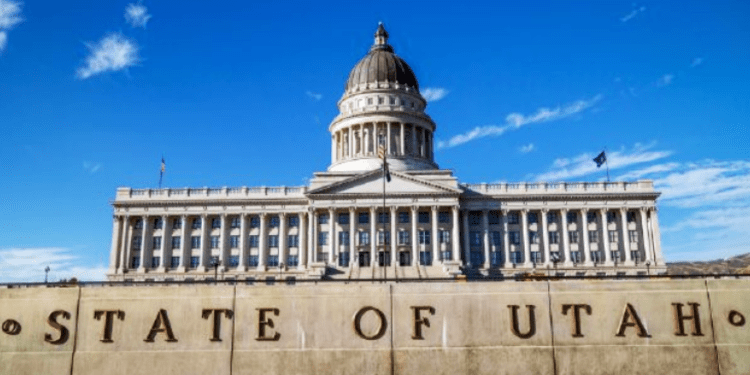- Utah passes its DAO Act bill, finally giving DAOs the legal recognition the participants have been clamouring for.
- Utah becomes one of the few states to use the COALA model law approach, unlike the LLC wrapper method which is commonly used.
- The Utah DAO Act is expected to be fully implemented in January 2024.
Decentralized Autonomous Organisations (DAOs) in Utah State have been granted legal recognition since the Utah State Legislature passed Act HB 357.
The news was shared with the crypto community on March 2—a day after the bill was passed—via a report by National Law Review, announcing that the new law would provide limited liability and legal recognition to DAOs.
The passed Act was said to be a joint effort between Utah Legislature’s Blockchain and Digital Innovation Task Force. The Act defines possession of DAOs and guards DAO-compliant anonymity through bylaws.
According to the news media, the Utah DAO Act employed a version of the COALA model law, unlike the “LLC wrapper” approach that most states used to grant DAOs legal entity status and limited liability safety. The COALA model achieves more than the LLC wrapper approach as it provides DAOs with a level of legal personality and avenues for decentralization.
Features of the Utah DAO Act
The Utah DAO Act was passed on March 1 after passing through the Senate and House committees and was then legally framed as “Utah LLDs.” The following are features of the passed DAO Act:
- It integrates a gatekeeping technology role to ensure DAO (Decentralised Autonomous Organisations) is genuinely a DAO
- It initiates quality assurance requirements for DAO protocols.
- It creates a transparent tax treatment in line with present DAO functionalities.
- It states that there are no indirect fiduciary duties owed by DAO participants unless particularly implied.
The Utah DAO Act aims to allow room for innovation as it recognizes the personality of DAOs.
According to Forbes, the new laws aim to make Utah State more advantageous for crypto projects as the absence of validity on liabilities and responsibilities of several participants within these organizations creates critical situations for those who partake in DAOs.
Although the Decentralised Autonomous Organisation (DAO) Act will be effective in January 2024.
Concerns regarding the Utah DAO Act
The HB 357 Act had three main concerns and compromises, which were total unaccountable anonymity for the DAO base, lack of ramp-up time to ensure the Utah Division of Corporation is ready to handle new applications, and inconsistency of original tax language (LLC flow through) with potential state and federal tax realities.
Compromise of the Utah DAO Act
The compromise to these concerns was to require every DAO to have a disclosed incorporator while allowing every DAO participant to remain anonymous, the Utah Tax Commissioner’s office to propose acceptable tax language, and more time to fully edit, adjust, and ensure the proper implementations can be made for easy adoption.
Conclusion
Utah is a rapidly growing technology hub, and the passage of the Utah DAO Act would transform the state into an open environment for decentralization and creativity, welcoming numerous DAOs into its blockchain ecosystem.














